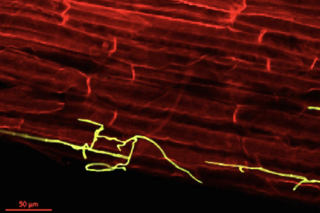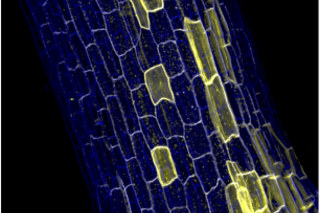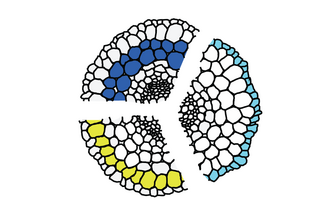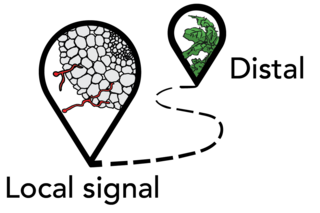How do plants tell friend from foe?
The Cantó-Pastor lab is dedicated to understanding how plants let some beneficial soil microbes into their roots while keeping pathogens at bay. We develop transcriptomics, single cell-omics, and imaging methods to explore fundamental questions in plant immunity and cell type-specific regulatory mechanisms. Our research program is designed to address these questions and leverage the acquired knowledge to modulate the plant responsiveness to microbes, ultimately improving agricultural productivity and food security.
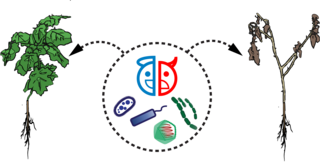
Navigating biotic interactions
Plants engage in a wide range of interactions with microbes throughout their life cycle. Certain beneficial microbes can colonize plant roots, and enhance plant growth, nutrient acquisition, or even prime the plant to respond to pathogen infections more effectively. The ability to accommodate beneficial microbes depends on the plant’s capacity to modulate the same immune system that defends it against pathogen attacks. Even in these beneficial plant-microbe interactions, the plant must set limits to the colonization of the root by these microbes, only allowing them in specific tissues. While tissue boundaries in root-microbe interactions are a widely observed phenomenon, we know little about the genetic basis for these. The goal of our research is to understand the role of tissue-specific immune responses in hosting beneficial microbes, and the preparedness for pathogen attack that these interactions confer. We aim to identify key molecular elements in beneficial plant-microbe interactions and manipulate these to enhance the benefits of such interactions.
